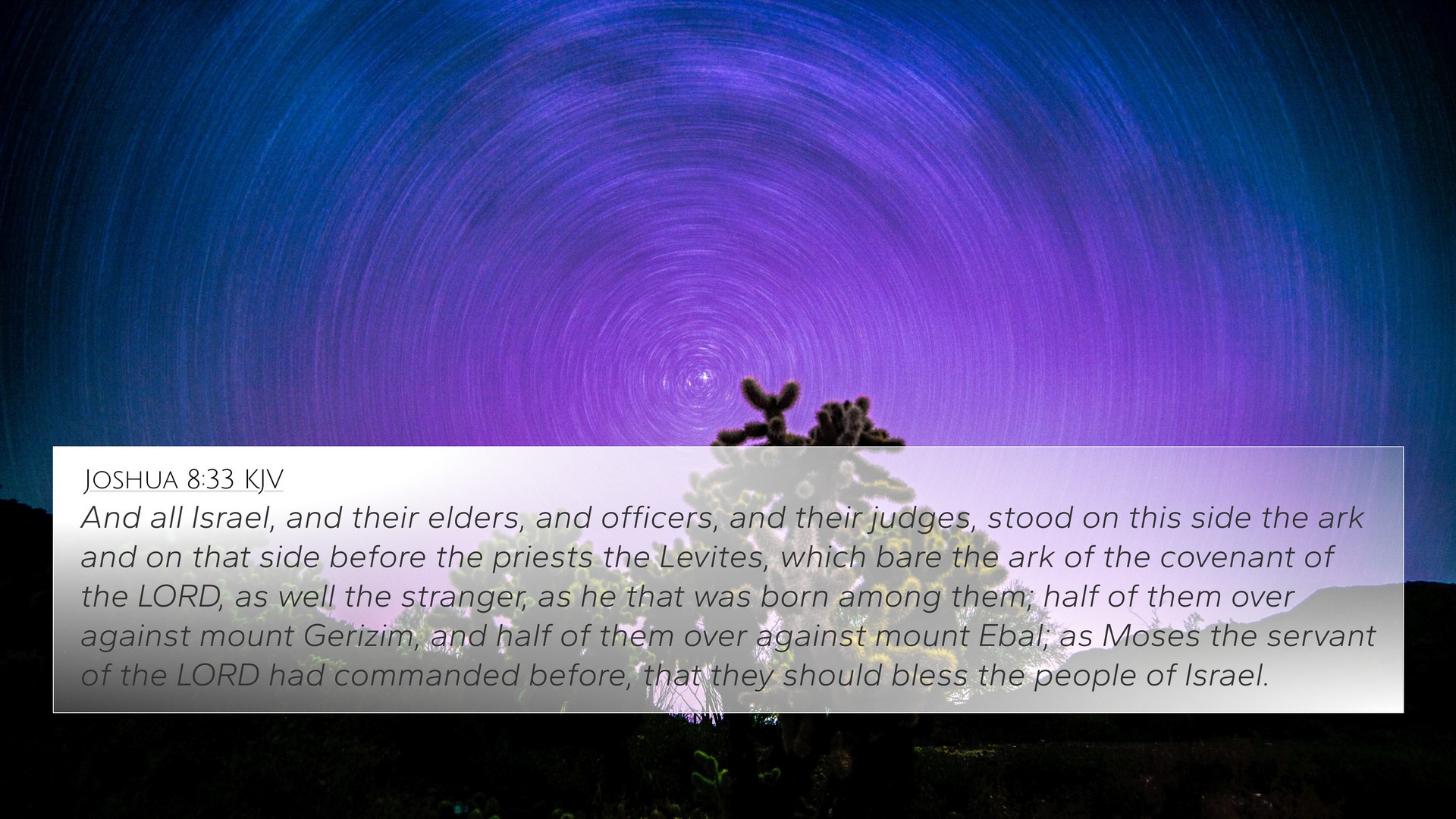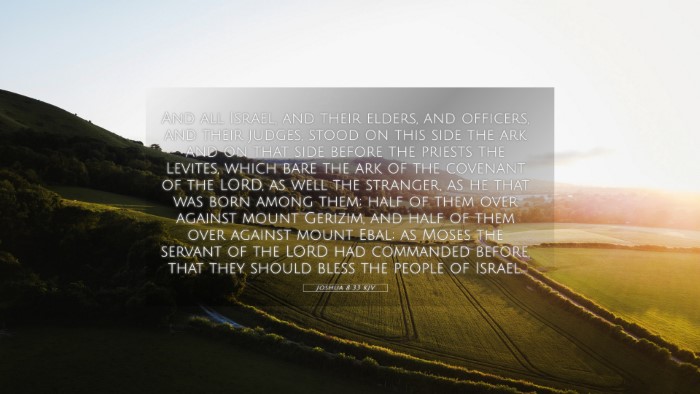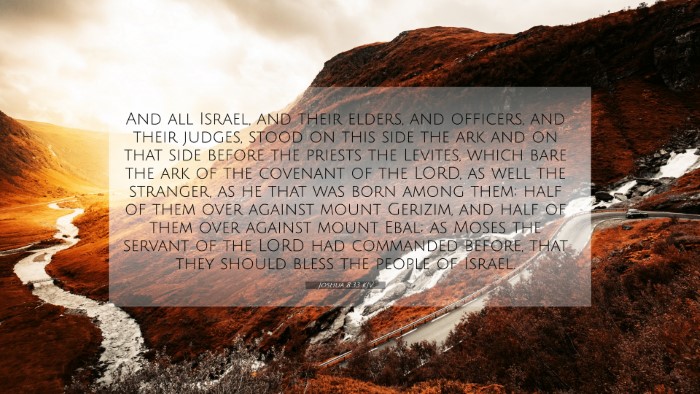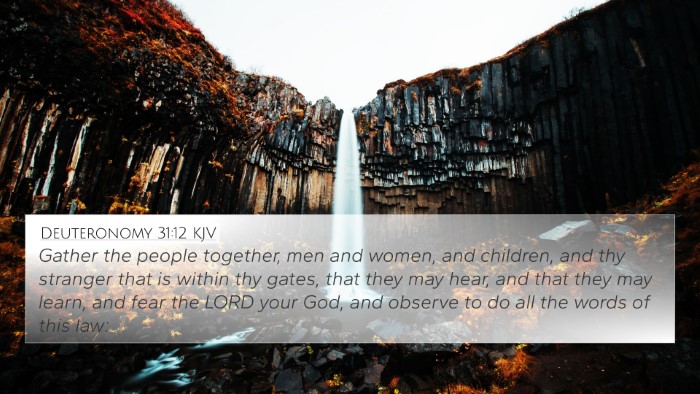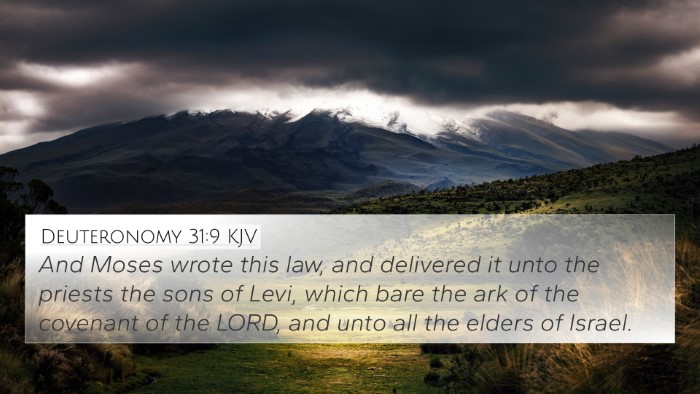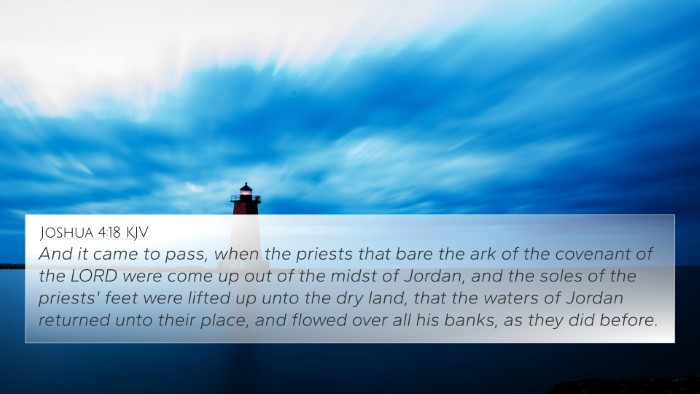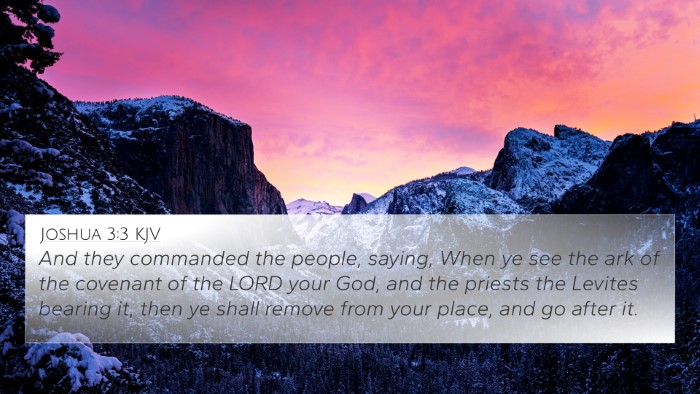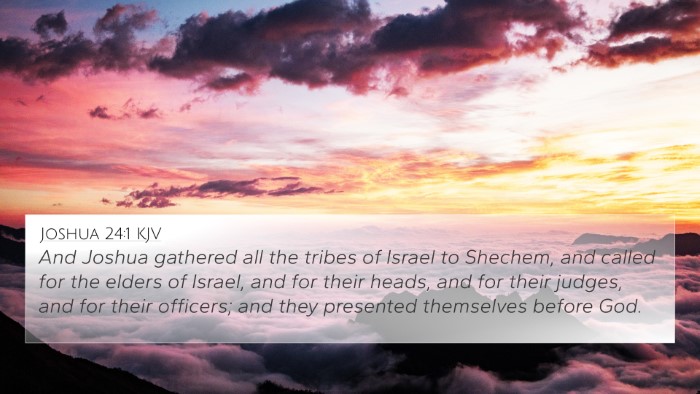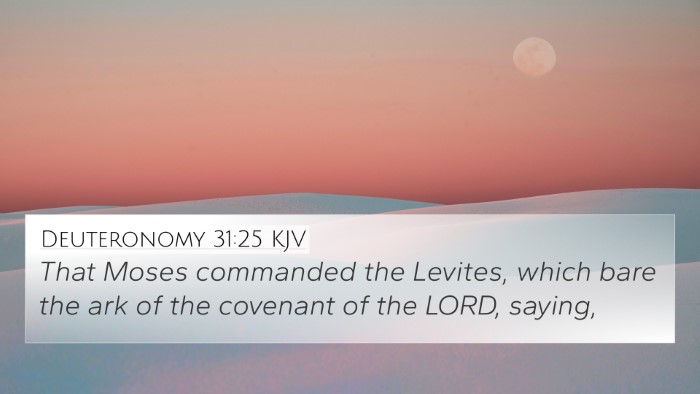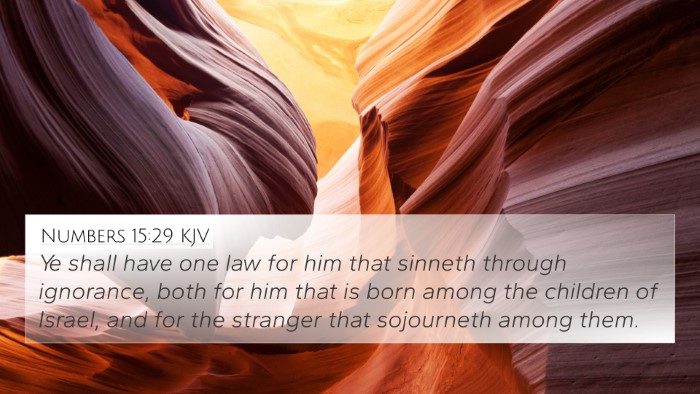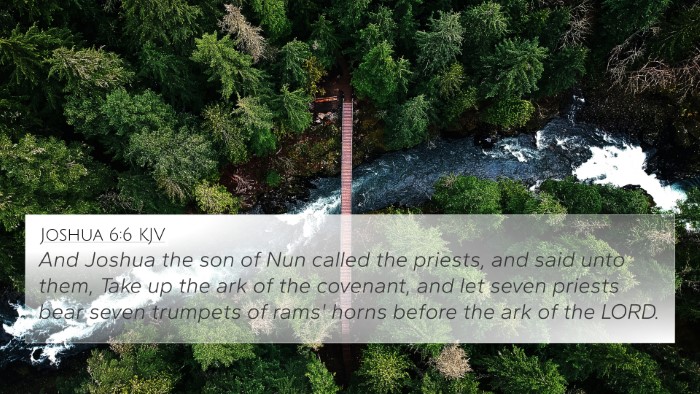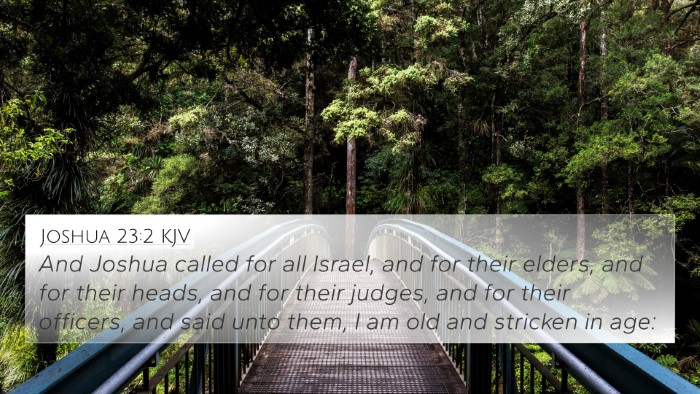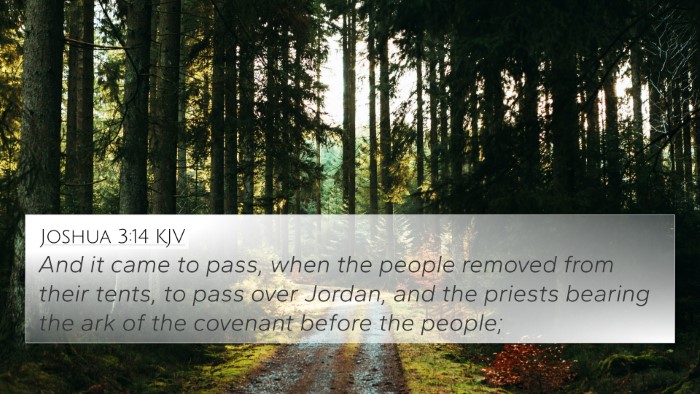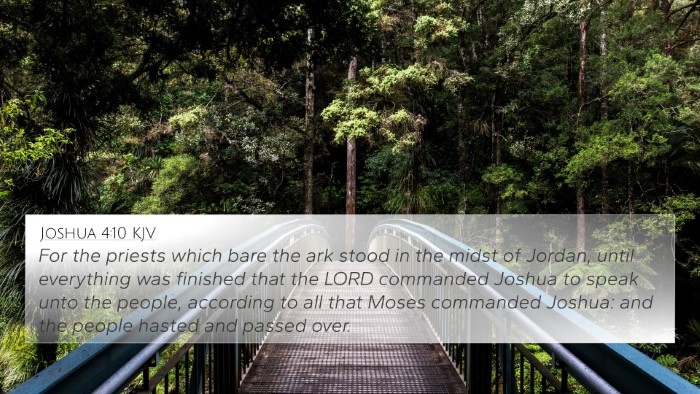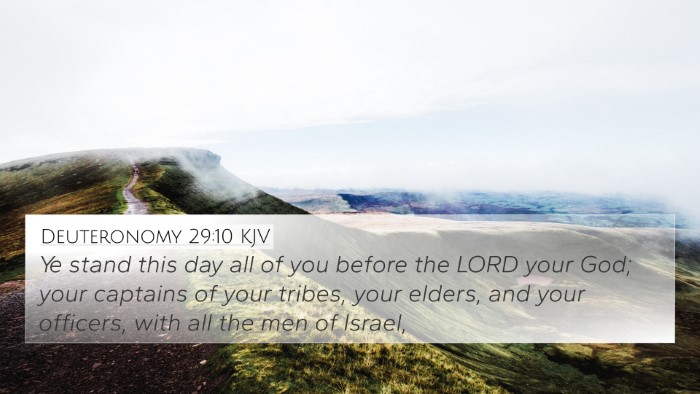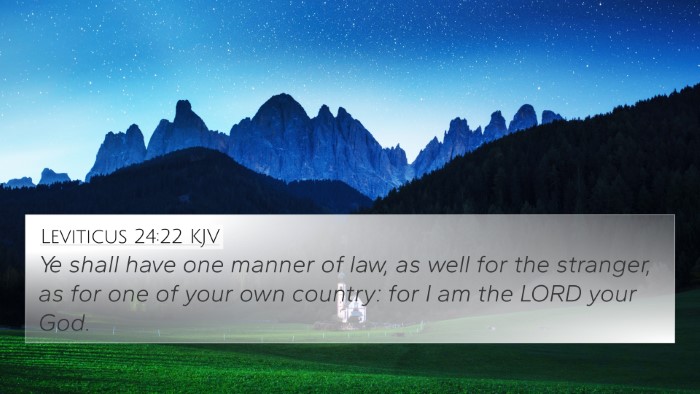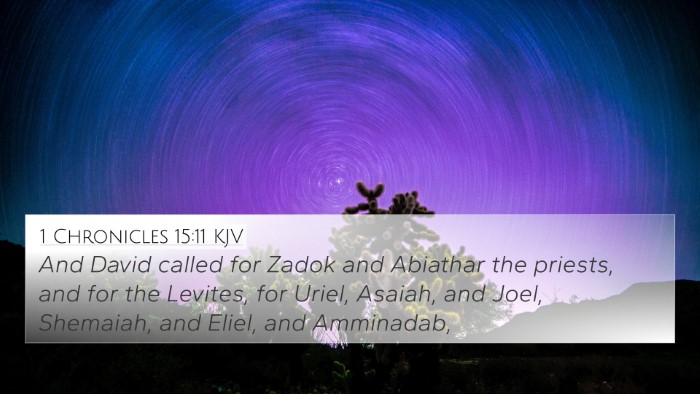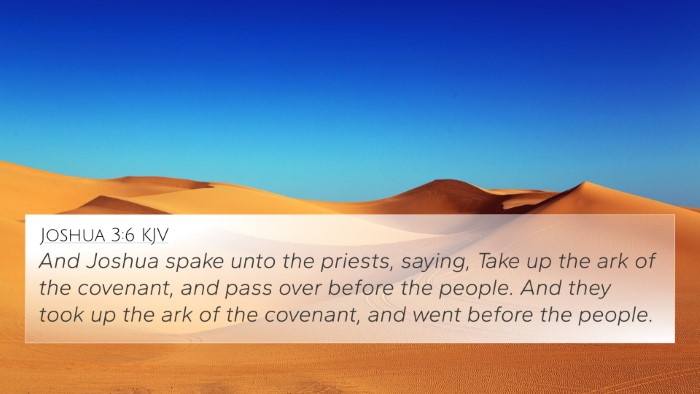Interpretation of Joshua 8:33
Joshua 8:33 states, "And all Israel, and their elders, and officers, and their judges, stood on this side of the ark and on that side before the priests the Levites, which bare the ark of the covenant of the Lord, as well the stranger, as he that was born among them; half of them over against mount Gerizim, and half of them over against mount Ebal; as Moses the servant of the Lord had commanded before, that they should bless the people of Israel."
This verse highlights a significant event in Israel's history where God's covenant people gathered to affirm their commitment to God and His commandments, performed in the presence of the covenant ark. The gathering at Gerizim and Ebal represents the choices laid before them—blessings for obedience and curses for disobedience. Below is a summary derived from public domain commentaries.
Meaning and Significance
The assembly described in Joshua 8:33 symbolizes unity among the Israelites as they reaffirm their covenant with God. The roles of the elders, priests, and common people underscore the communal nature of worship and obedience to divine commands.
Key Themes
- Covenant Community: The gathering of all social classes illustrates that God’s covenant includes everyone from leaders to commoners, emphasizing equal responsibility in following God.
- Obedience to God’s Command: The event follows Moses' instructions, affirming that obedience is vital in maintaining the relationship with God (Deuteronomy 27:11-13).
- Symbolic Geography: Mount Gerizim and Mount Ebal symbolize the choices faced by Israel, representing blessings for obedience and curses for disobedience (Deuteronomy 11:29).
Biblical Cross-References
- Deuteronomy 27:11-13: Details the command given by Moses regarding the blessings and curses that are to be pronounced.
- Joshua 8:34-35: Continues the narrative emphasizing the reading of the law in full to all the people.
- Deuteronomy 11:29: Reinforces the geographical symbolism of the mountains involved in the blessings and curses.
- Luke 24:44: Connects Jesus' teachings to the Law of Moses, an indication of God’s enduring covenant.
- Galatians 6:7: Speaks to the principle of reaping what one sows, reminiscent of the covenant blessings and curses.
- James 1:25: Emphasizes the importance of looking into the perfect law and responding in obedience, akin to the law read to the Israelites.
- Romans 2:13: Highlights that it is not merely hearing the law that counts, but doing it, reflecting back to the commitment of Israel.
Connections to Other Bible Verses
The thematic connections drawn from Joshua 8:33 highlight the fundamental principles of obedience, community, and the importance of God’s law. This verse serves as a link between the Old Testament’s focus on covenant fidelity and New Testament principles of obedience to Christ.
Further Contextual Insights
Matthew Henry emphasizes that the physical gathering of the Israelites reflected their spiritual unity, portraying a solemn moment where the whole nation engaged in the act of worship. Albert Barnes notes the significance of the event as a public recommitment to God’s covenant, reminiscent of temple worship where the entire community comes to honor God's commandments. Adam Clarke elaborates on the symbolic meaning of the blessings and curses proclaimed, illustrating the dire consequences of straying from God's law.
Application for Today's Believers
Today's believers can draw from Joshua 8:33 the importance of community worship and commitment to God's commandments. The high level of participation in the worship experience can inspire modern congregations to engage more deeply in community rituals that affirm their faith and dedication to God's teachings. Through cross-referencing scriptures, believers can see the continuity of God's call to obedience through different testimonies across the Bible.
Resources for Further Study
- Bible Concordance: Tools to find words and themes throughout the text.
- Cross-Reference Bible Study: Methods to explore interconnected biblical themes.
- Bible Chain References: Comprehensive materials linking themes and verses for deeper understanding.
Conclusion
Joshua 8:33 serves as more than a historical narrative; it illustrates the continuous call for unity, obedience, and the acknowledgment of God's foundational laws in shaping the identity of His people. By cross-referencing related scriptures, believers can deepen their understanding and application of these timeless truths in their lives today.
